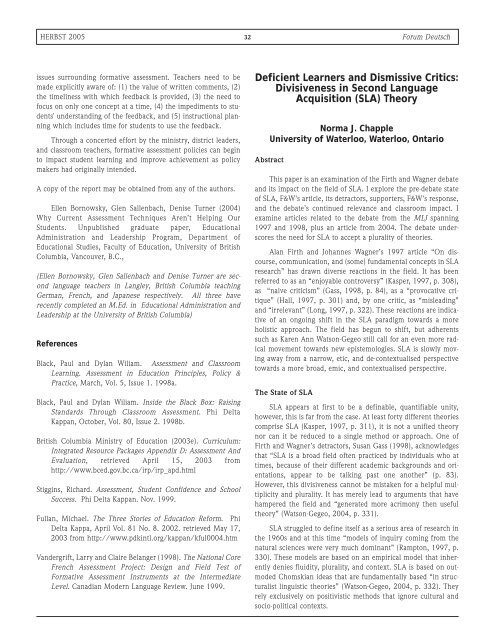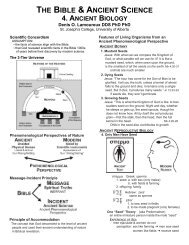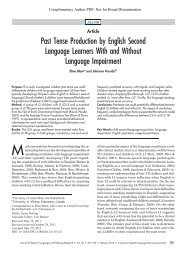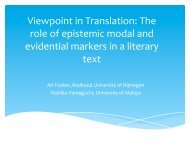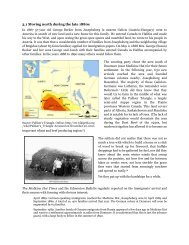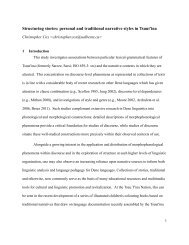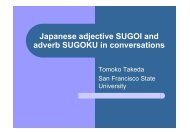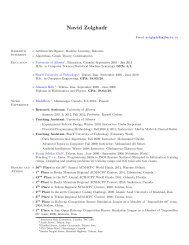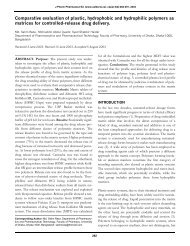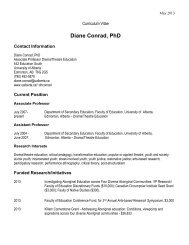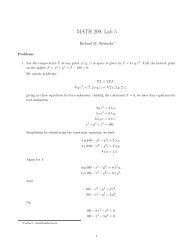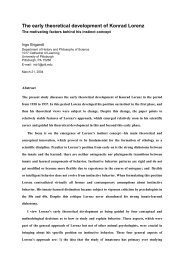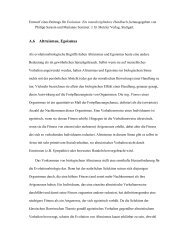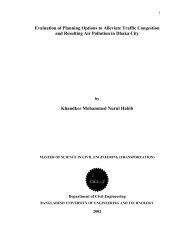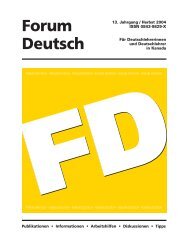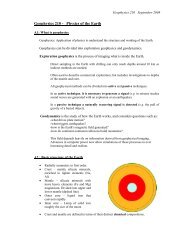Forum Deutsch - University of Alberta
Forum Deutsch - University of Alberta
Forum Deutsch - University of Alberta
Sie wollen auch ein ePaper? Erhöhen Sie die Reichweite Ihrer Titel.
YUMPU macht aus Druck-PDFs automatisch weboptimierte ePaper, die Google liebt.
HERBST 2005 32 <strong>Forum</strong> <strong>Deutsch</strong><br />
issues surrounding formative assessment. Teachers need to be<br />
made explicitly aware <strong>of</strong>: (1) the value <strong>of</strong> written comments, (2)<br />
the timeliness with which feedback is provided, (3) the need to<br />
focus on only one concept at a time, (4) the impediments to students'<br />
understanding <strong>of</strong> the feedback, and (5) instructional planning<br />
which includes time for students to use the feedback.<br />
Through a concerted effort by the ministry, district leaders,<br />
and classroom teachers, formative assessment policies can begin<br />
to impact student learning and improve achievement as policy<br />
makers had originally intended.<br />
A copy <strong>of</strong> the report may be obtained from any <strong>of</strong> the authors.<br />
Ellen Bornowsky, Glen Sallenbach, Denise Turner (2004)<br />
Why Current Assessment Techniques Aren’t Helping Our<br />
Students. Unpublished graduate paper, Educational<br />
Administration and Leadership Program, Department <strong>of</strong><br />
Educational Studies, Faculty <strong>of</strong> Education, <strong>University</strong> <strong>of</strong> British<br />
Columbia, Vancouver, B.C.,<br />
(Ellen Bornowsky, Glen Sallenbach and Denise Turner are second<br />
language teachers in Langley, British Columbia teaching<br />
German, French, and Japanese respectively. All three have<br />
recently completed an M.Ed. in Educational Administration and<br />
Leadership at the <strong>University</strong> <strong>of</strong> British Columbia)<br />
References<br />
Black, Paul and Dylan Wiliam. Assessment and Classroom<br />
Learning. Assessment in Education Principles, Policy &<br />
Practice, March, Vol. 5, Issue 1. 1998a.<br />
Black, Paul and Dylan Wiliam. Inside the Black Box: Raising<br />
Standards Through Classroom Assessment. Phi Delta<br />
Kappan, October, Vol. 80, Issue 2. 1998b.<br />
British Columbia Ministry <strong>of</strong> Education (2003e). Curriculum:<br />
Integrated Resource Packages Appendix D: Assessment And<br />
Evaluation, retrieved April 15, 2003 from<br />
http://www.bced.gov.bc.ca/irp/irp_apd.html<br />
Stiggins, Richard. Assessment, Student Confidence and School<br />
Success. Phi Delta Kappan. Nov. 1999.<br />
Fullan, Michael. The Three Stories <strong>of</strong> Education Reform. Phi<br />
Delta Kappa, April Vol. 81 No. 8. 2002. retrieved May 17,<br />
2003 from http://www.pdkintl.org/kappan/kful0004.htm<br />
Vandergrift, Larry and Claire Belanger (1998). The National Core<br />
French Assessment Project: Design and Field Test <strong>of</strong><br />
Formative Assessment Instruments at the Intermediate<br />
Level. Canadian Modern Language Review. June 1999.<br />
Deficient Learners and Dismissive Critics:<br />
Divisiveness in Second Language<br />
Acquisition (SLA) Theory<br />
Norma J. Chapple<br />
<strong>University</strong> <strong>of</strong> Waterloo, Waterloo, Ontario<br />
Abstract<br />
This paper is an examination <strong>of</strong> the Firth and Wagner debate<br />
and its impact on the field <strong>of</strong> SLA. I explore the pre-debate state<br />
<strong>of</strong> SLA, F&W’s article, its detractors, supporters, F&W’s response,<br />
and the debate’s continued relevance and classroom impact. I<br />
examine articles related to the debate from the MLJ spanning<br />
1997 and 1998, plus an article from 2004. The debate underscores<br />
the need for SLA to accept a plurality <strong>of</strong> theories.<br />
Alan Firth and Johannes Wagner’s 1997 article “On discourse,<br />
communication, and (some) fundamental concepts in SLA<br />
research” has drawn diverse reactions in the field. It has been<br />
referred to as an “enjoyable controversy” (Kasper, 1997, p. 308),<br />
as “naive criticism” (Gass, 1998, p. 84), as a “provocative critique”<br />
(Hall, 1997, p. 301) and, by one critic, as “misleading”<br />
and “irrelevant” (Long, 1997, p. 322). These reactions are indicative<br />
<strong>of</strong> an ongoing shift in the SLA paradigm towards a more<br />
holistic approach. The field has begun to shift, but adherents<br />
such as Karen Ann Watson-Gegeo still call for an even more radical<br />
movement towards new epistemologies. SLA is slowly moving<br />
away from a narrow, etic, and de-contextualised perspective<br />
towards a more broad, emic, and contextualised perspective.<br />
The State <strong>of</strong> SLA<br />
SLA appears at first to be a definable, quantifiable unity,<br />
however, this is far from the case. At least forty different theories<br />
comprise SLA (Kasper, 1997, p. 311), it is not a unified theory<br />
nor can it be reduced to a single method or approach. One <strong>of</strong><br />
Firth and Wagner’s detractors, Susan Gass (1998), acknowledges<br />
that “SLA is a broad field <strong>of</strong>ten practiced by individuals who at<br />
times, because <strong>of</strong> their different academic backgrounds and orientations,<br />
appear to be talking past one another” (p. 83).<br />
However, this divisiveness cannot be mistaken for a helpful multiplicity<br />
and plurality. It has merely lead to arguments that have<br />
hampered the field and “generated more acrimony then useful<br />
theory” (Watson-Gegeo, 2004, p. 331).<br />
SLA struggled to define itself as a serious area <strong>of</strong> research in<br />
the 1960s and at this time “models <strong>of</strong> inquiry coming from the<br />
natural sciences were very much dominant” (Rampton, 1997, p.<br />
330). These models are based on an empirical model that inherently<br />
denies fluidity, plurality, and context. SLA is based on outmoded<br />
Chomskian ideas that are fundamentally based “in structuralist<br />
linguistic theories” (Watson-Gegeo, 2004, p. 332). They<br />
rely exclusively on positivistic methods that ignore cultural and<br />
socio-political contexts.


